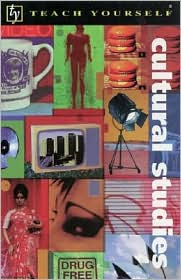Weblog zu meiner Diplomarbeit "Deutschsprachige Star Trek-Fan Fiction. Genre, Kanäle, Motive", die ich im März 2013 am Institut für Germanistik der Universität Wien fertiggestellt habe
Montag, 24. August 2009
Call for Papers: Fan works and fan communities in the age of mechanical reproduction
"Scholars of literature and popular culture, along with ethnographers and sociologists, have produced a rich and sophisticated body of literature about fan communities and creativity over the last twenty years, but most of this work has focused on groups of fans who have been active since the 1960s, and very little of it has been produced by historians. This special issue will focus on the rich history of fans and their engagement with a variety of objects of fandom. We seek to expand the range of topics and methodologies available to studies of fans and their communities, and we hope to understand fans better by studying them in their historical contexts.
We invite contributions that focus on fan works and/or fan communities from any place and time since the late eighteenth century. This periodization is informed by Walter Benjamin's idea that—thanks to the invention of lithography—the original artwork, with its unique aura, came into being at that point precisely because of the availability of cheap copies. He argued that the distinctions between original and mass-produced commercial art and media created the boundary between high and popular art, and between mass and bourgeois tastes. We wonder whether the historical study of fans and fan works might modify Benjamin's formulation of the nineteenth and twentieth centuries as the Age of Mechanical Reproduction. Does the long-standing existence of fan fiction, fan art, and other forms of community-generated fan works clarify or muddy his argument?
The special issue will be divided between scholarly contributions of 4,000 to 7,000 words, and oral histories of older fans. We will seek to include scholarly articles and oral histories that can be read against or with each other. For example, an interview of a present-day cosplayer might be juxtaposed with an article on nineteenth-century amateur drama".
Sonntag, 23. August 2009
Technovelgy

Eine Seite, auf der Science Fiction-Fans Stunden zubringen können, ist Technovelgy von Bill Christensen: "Explore the inventions and ideas of science fiction writers". Für mich als Bibliothekarin ist die Kategorie "Data storage" besonders interessant, aber auch Einträge wie "micro book", "electronic paper" und "robot librarian". - Die Seite verzeichnet nicht einfach nur Technologien, die von SF-AutorInnen ersonnen wurden, sondern ergänzt diese Vorstellungen durch Links zu Medienberichten über tatsächliche Erfindungen und Entwicklungen (ein simples Beispiel wäre Kommunikator > Handy).
Suchen und Browsen sind nach Kategorie (von Armor bis Work), Timeline (beginnend mit Schwerelosigkeit - Kepler 1634), AutorIn (von Adams bis Zelazny) und Buch möglich.
Star Trek "K/S" Fanzine Auction
Aus der Beschreibung: "Virginia 'Bitterwind' Smith discusses her experiences as a writer and artist in Star Trek fandom, and her extensive collection of 'K/S' erotic fanzines".
Fanzine über "Why I Am a Fan"
Neu auf der Literaturliste
Hills, Matt: "Patterns of Surprise. The 'Aleatory Object' in Psychoanalytic Ethnography and Cyclical Fandom". In: American Behavioral Scientist 48 (2005) 7, S. 801 – 821
Chatelain, Julianne: "Learning from the review culture of fan fiction". In: Journal of Digital Information 3 (2002) 3
Rehak, Bob: "Mapping the bit girl: Lara Croft and new media fandom". In: Information Communication & Society 6 (2003) 4, S. 477 - 496
Samstag, 22. August 2009
Filk, Gender und Copyright
Aus dem Abstract: "While many filk songs are original lyrics set to original music, many more filk songs consist of lyrics written to existing music and/or lyrics based on characters/worlds created by other people. These practices potentially create problems in light of existing intellectual property law. In this paper, we explore those issues and whether a filker's gender influences his or her attitude towards intellectual property law. After setting out a basic explanation of filk and the intellectual property issues, the article details the various statistical results generated from the databases we built (one objective and one subjective) and draws some conclusions about gender and filk".
Teach yourself cultural studies
random fandom links
Fanac Fan History Project: "devoted to the preservation and distribution of information about science fiction and science fiction fandom. Here you might find your favorite fanzine, pictures of Walt Willis in Ireland or Harlan Ellison at the 1955 Worldcon. You can also find the words to an early filk song, information about an SF con near you AND all sorts of strange and wonderful information about fandom's past. And the present, too, because that's tomorrow's past"
Science Fiction and Fantasy Research Database: "on-line, searchable compilation and extension of Science Fiction and Fantasy Reference Index 1878-1985, Science Fiction and Fantasy Reference Index 1985-1991, and Science Fiction and Fantasy Reference Index 1992-1995, including material located since publication of the last printed volume" (RSS available)
The Voices of Fandom: "Our continuing 'mission' is to collect audio interviews and audio clips, either newly recorded or historic artifacts, spoken word or music, for the entertainment of interested science fiction fans everywhere! The site includes rare clips, interviews, stories of 'fan history', readings of fan writings, music, filk room recordings and voices of fans in the ongoing Fandom Oral History project" (RSS available)
MidAmerican Fan Photo Archive: "a gallery of over 8,000 photographs of science fiction fans and professionals taken at science fiction conventions and events around the world"
International Association of Audience and Fan Studies: "this new organization will promote cross-disciplinary communication, activities, and scholarship through traditional academic venues"
Norsk Fanzinekongress

Norsk Fanzinekongress - Photo von svennevenn
Leider verstehe ich die Ankündigung bzw. Berichte auf den norwegischen Websites nicht, aber dieser Kongress hört sich wirklich interessant an... und unter "foredrag, presentasjoner, filmvisning og tegneverksted — alt med fokus på fanziner" (Quelle) kann ich mir schon ein bisschen was vorstellen.
Bradbury und Fanzines
Samstag, 15. August 2009
kids writing fan fiction
Freitag, 7. August 2009
Wunschbuch "Investigating Audiences"
Update 22.8.2009: Buch ist als "beim Lieferanten bestellt" im Katalog :-)
